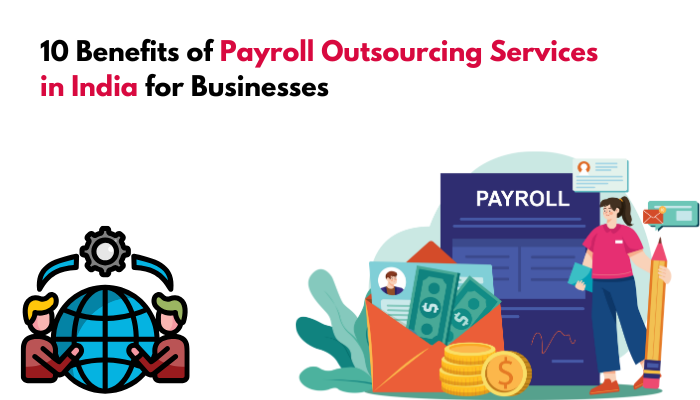Managing finances is one of the most critical aspects of running a successful business. Whether you’re a startup, a small business owner, or an established company, financial management can become overwhelming without the right expertise. This is why many business owners choose to hire an accountant – a professional who can handle bookkeeping, tax compliance, financial planning, and more.
However, hiring the right accountant requires more than just finding someone who knows numbers. You need a professional who understands your industry, aligns with your business goals, and provides value beyond basic accounting tasks. In this guide, we’ll explore the best approach to hire an accountant who meets your business needs.
1. Determine Why You Need to Hire an Accountant
Before you start looking for an accountant, it’s essential to define what you need help with. Different accountants specialize in various areas, so understanding your business’s financial requirements will help you find the right fit.
Some common reasons businesses hire an accountant include:
- Bookkeeping – Managing daily financial transactions and records.
- Tax Preparation and Filing – Ensuring compliance with tax regulations and maximizing deductions.
- Financial Planning – Offering insights into budgeting, forecasting, and business growth.
- Payroll Management – Handling employee salaries, tax withholdings, and benefits.
- Audit and Compliance – Preparing financial reports and ensuring regulatory adherence.
By identifying your specific needs, you can narrow your search to accountants with the right expertise.
2. Understand the Different Types of Accountants
Not all accountants provide the same services. Depending on your business needs, you may require a specific type of accountant. Understanding the differences will help you make an informed decision.
Types of Accountants:
- Certified Public Accountant (CPA): Licensed professionals who offer tax planning, audits, and consulting services.
- Bookkeeper: Manages daily financial transactions but may not provide tax or compliance services.
- Tax Accountant: Specializes in tax planning, filing, and compliance.
- Forensic Accountant: Focuses on detecting fraud and financial discrepancies.
- Management Accountant: Provides strategic financial analysis for business growth.
Selecting the right type of accountant ensures that your business gets the most relevant financial support.
3. Decide Between Hiring In-House or Outsourcing
When looking to hire an accountant, you’ll need to choose between hiring a full-time employee or outsourcing to a professional accounting firm or freelancer. Each option has its pros and cons.
Hiring an In-House Accountant:
- Best for businesses with complex financial operations.
- Provides direct, real-time support for financial management.
- Can be costly due to salaries, benefits, and office expenses.
Outsourcing to an Accounting Firm or Freelancer:
- Cost-effective for small businesses and startups.
- Access to specialized expertise without long-term commitments.
- Flexible service options based on your business’s evolving needs.
Consider your budget, the complexity of your finances, and the level of control you want over accounting tasks before making a decision.
4. Check Qualifications and Certifications
When hiring an accountant, their qualifications and certifications play a crucial role in ensuring they have the necessary skills to handle your business finances.
Look for:
- CPA (Certified Public Accountant): Highly qualified for tax and audit services.
- Chartered Accountant (CA): Recognized in many countries for advanced accounting expertise.
- Enrolled Agent (EA): Specializes in tax matters and IRS representation.
- QuickBooks or Xero Certification: Useful for businesses relying on accounting software.
Always verify an accountant’s credentials and confirm their standing with professional regulatory bodies before hiring.
5. Assess Industry Experience
Hiring an accountant with experience in your specific industry can provide additional advantages. Industry-specific financial regulations, tax laws, and accounting practices can vary, making it essential to work with someone familiar with your field.
For example:
- Retail and E-commerce: Expertise in inventory management and sales tax.
- Real Estate: Knowledge of property depreciation and capital gains tax.
- Healthcare: Familiarity with medical billing and healthcare compliance.
- Tech Startups: Understanding of investor funding, R&D tax credits, and scaling finances.
An accountant with industry experience will be better equipped to provide relevant financial advice and solutions tailored to your business.
6. Evaluate Their Use of Technology
Modern accounting relies heavily on digital tools, and the accountant you hire should be proficient in using the latest accounting software.
Key Software to Look For:
- QuickBooks – Ideal for small businesses and bookkeeping.
- Xero – Cloud-based accounting software for scalability.
- FreshBooks – Best for freelancers and service-based businesses.
- Wave – Free accounting software for startups.
Hiring an accountant who embraces technology ensures efficiency, real-time reporting, and seamless integration with your business operations.
7. Look for Strong Communication and Analytical Skills
A great accountant does more than just crunch numbers. They should be able to communicate financial information clearly, helping you make informed decisions. Strong analytical skills are also essential for spotting trends, identifying risks, and optimizing cash flow.
When interviewing candidates, assess their ability to:
- Explain complex financial concepts in simple terms.
- Offer strategic recommendations based on data analysis.
- Proactively identify cost-saving opportunities.
Hiring an accountant who can act as a financial advisor, rather than just a record keeper, adds significant value to your business.
8. Ask for References and Reviews
Before making a final decision, it’s always a good idea to check an accountant’s references or online reviews. This provides insight into their professionalism, reliability, and ability to handle real-world business scenarios.
Where to find reviews:
- Google Reviews and LinkedIn – Client feedback on their expertise.
- Industry Associations – Check CPA boards or accounting organizations.
- Business Networks – Ask for referrals from fellow entrepreneurs.
Speaking with previous clients can give you a better idea of what to expect when working with a particular accountant.
9. Discuss Fees and Payment Structures
Accounting services come with varying costs depending on expertise, location, and scope of work. Understanding an accountant’s fee structure will help you budget accordingly.
Common Fee Structures:
- Hourly Rate: Ideal for occasional financial tasks.
- Monthly Retainer: Fixed costs for ongoing services.
- Project-Based Pricing: One-time fees for specific tasks like tax filing or audits.
Always get a clear estimate of fees and ensure there are no hidden costs before hiring an accountant.
10. Ensure a Good Cultural Fit
An accountant is not just a service provider but a key partner in your business’s financial health. Ensuring they align with your company’s values, work culture, and business goals is essential for a smooth working relationship.
Consider:
- Their responsiveness and availability.
- Their willingness to understand your long-term business vision.
- Whether their working style matches your company’s pace and expectations.
A good cultural fit ensures better collaboration and long-term success.
Reference This Article- Offshore Accounting Services- Affordable Expertise for Your Business
Final Thoughts
Choosing to hire an accountant is one of the most important financial decisions a business can make. Whether you need help with bookkeeping, tax compliance, financial planning, or strategic growth, the right accountant can make all the difference.
By carefully assessing your business needs, checking qualifications, evaluating industry experience, and ensuring a strong cultural fit, you can confidently hire an accountant who not only manages your finances but helps drive your business forward.
To Read More Blogs, You Can Explore This Website Also- kataberita.net






